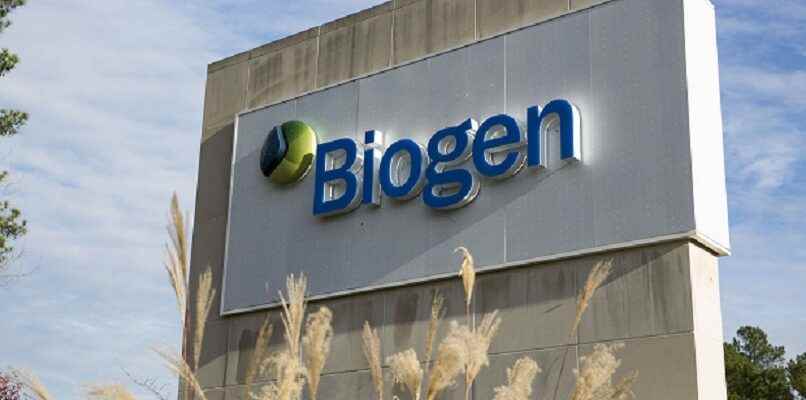The American biotech Biogen, one of the largest in the world, specializing in the search for revolutionary treatments against neurodegenerative diseases, jumped by more than 50% this Wednesday on Wall Street. Its shares, which trade at almost $300 on market forecourt, are at their highest in a year, as investors rush into the title deeds of this company which could well be the first to market an effective treatment against the Alzheimer, which slows the progression of the disease without however stopping it, nor restoring the cognitive losses.
The biotech and its Japanese partner Eisai (+17% at the close of Tokyo) presented, last night, four days after the world day dedicated to the fight against the disease, promising clinical results with regard to large-scale tests. carried out on their experimental drug Lecanemab, in phase III of the trial (i.e. the last before a potential green light from the health authorities). The tests, conducted on patients in the early stages of the disease, showed that Lecanemab slowed disease progression by 27% over eighteen months compared to a placebo. This result fulfills the main objective of the study (and all the others for that matter, including various measures of the ability to perform daily activities) and gives hope to patients and their families who are desperately waiting for effective treatment.
Until now, and for several decades, pharmaceutical groups had failed to find an effective treatment for this disease which destroys the brain and affects approximately 55 million people worldwide. Lecanemab is the latest in a long line of drugs designed to eliminate amyloid, a toxic disease-causing protein that clogs the brain. It should be noted, however, that the therapeutic benefits of the drug, hoped to be lasting and even better in the long term, are accompanied by side effects, in particular bleeding in the brain, although serious cases have been rare.
Marketing next year
“We finally have what we believe is a clear victory in Alzheimer’s disease”, comments Evan David Seigerman, financial analyst at BMO Capital Markets. This breakthrough in research, in addition to benefiting Biogen and Eisai in the financial markets, also gives a boost to the shares of Eli Lilly and Roche, which are developing similar drugs. Overall, the entire pharmaceutical industry involved in the fight against Alzheimer’s disease is booming on the stock market today. Among the smaller companies, biotech Prothena is expected to gain 60% on Wall Street while shares of Acumen Pharmaceuticals are expected to nearly double in value at the opening of the Nasdaq.
The promising clinical results of Lecanemab confirm that the therapeutic avenue aimed at targeting the beta-amyloid protein, main component of amyloid plaques in the brain of patients, is indeed the good one despite all the criticisms.
The therapeutic benefits of Biogen and Eisai’s drug candidate are “indisputable”explains Sacha Pouget, Associate Director at BioMed Impact. “The ‘p’ value of the study is perfect, it shows that the results are significant. It’s super encouraging, we had never seen that, on a sample of almost 1,800 more people, it’s tough. It should be understood, to give a good idea of the magnitude of the results, that a person who would be treated with Lecanemab for two years would gain eight months of quality of life. »
The Alzheimer’s Association hailed the results, saying they were the most encouraging results yet for drugs aimed at treating the underlying causes of the disease.
Lecanemab, a monoclonal antibody injected intravenously, is already being reviewed by US regulatory authorities under a special procedure known as accelerated approval for innovative treatments, which target diseases for which there is no no medicine yet. The decision is expected on January 6 and, “Given the first phase III results that we have, the FDA, it is almost certain, will give the green light”, says Sacha Pouget. Biogen and Eisai said they would seek final approval in the United States by the end of March, which could lead to broad coverage under the Medicare insurance program. They also plan to file, at the same time, applications in Europe and Japan.
In all likelihood, Lecanemab will be the first Alzheimer’s treatment on the market. Those of Eli Lilly and Roche, for which phase III results are also expected by the end of the year, should follow. All come in the form of an intravenous injection. For Sacha Pouget, the next “game changer” will take place the day when the pharmaceutical industry succeeds in developing a treatment in the form of a pill, always to slow down the disease, before succeeding in treating it completely and even preventing it.
